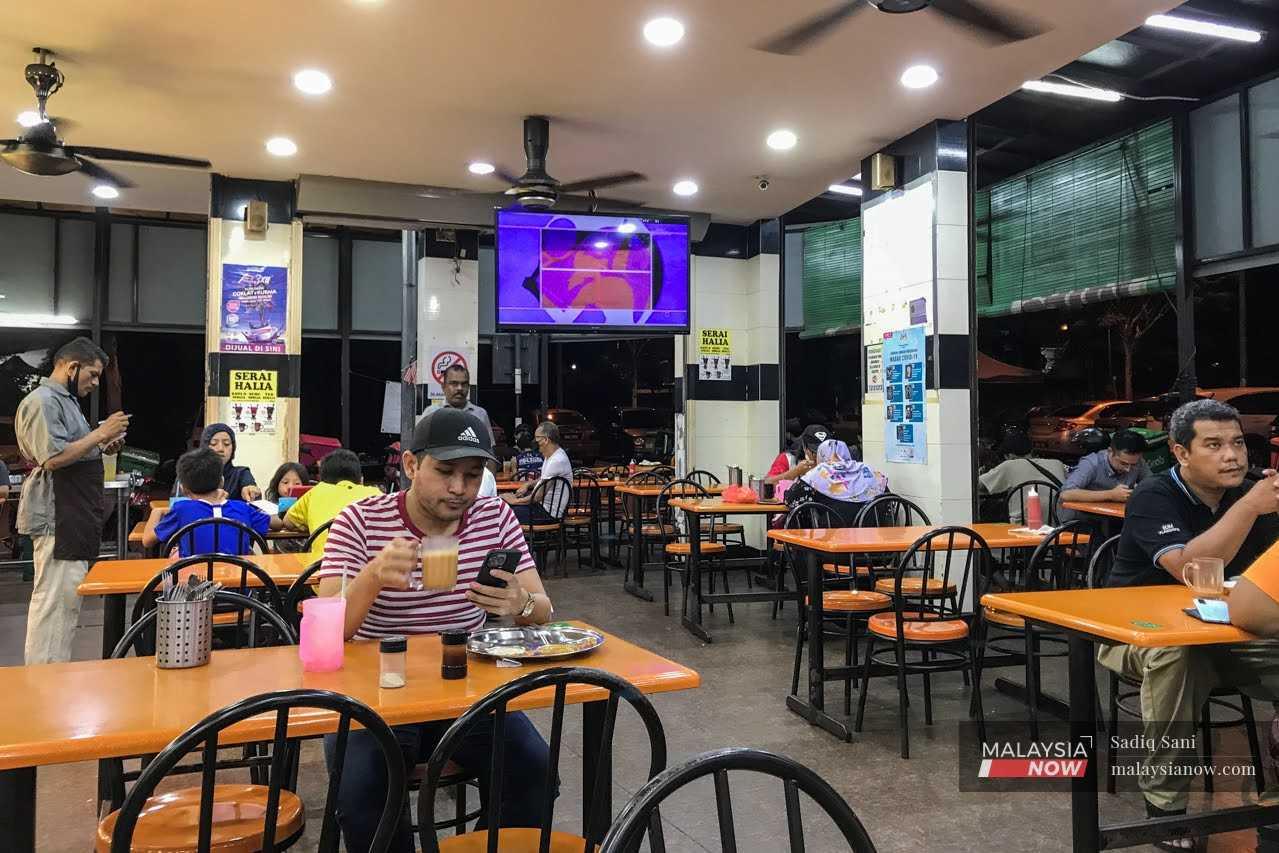How the labour crunch could be good for late-night eating habits
While the pandemic and foreign labour crunch have taken a toll on Malaysians' round-the-clock eating habits, this could also contribute to a healthier lifestyle.
Just In
Before the onset of Covid-19, hanging out or "lepaking" at fast food restaurants and mamak outlets was part and parcel of Malaysian culture.
From breakfast to lunch, tea-time to dinner and then on to supper, every meal of the day was available at all times of the day at such eateries.
But today, more than four months after Malaysia began its transition towards the endemic phase of Covid-19, this round-the-clock culture appears only a shadow of what it used to be.
Restaurants are allowed to operate 24 hours a day again, and face masks are only required indoors and not while eating.
Nevertheless, the foreign labour crunch has taken its toll on restaurant owners and operators who are now struggling to find the manpower needed to run their outlets.
For some, operating 24 hours a day is simply no longer an option.
But while the earlier closing hours may signal the death or at least the fading of a once-vibrant social movement, they may also have a knock-on effect of a more positive nature.
Dr Geeta Appannah, a nutritionist from Universiti Putra Malaysia, said that in general, eateries closing earlier could discourage people from snacking at late hours and help prevent the development of chronic illnesses.
Acknowledging that individual factors and home environments also play a role in the matter, Geeta nevertheless said that several theories exist on how eating late at night at restaurants and mamak shops could cause disorders like obesity and diabetes.
For one thing, eating out late at night normally occurs in a relaxed environment, for example while watching a football match and chatting with friends.
Speaking to MalaysiaNow, Geeta said it was easy for such activities to distract from mental tasks such as keeping track of one's calorie intake.
"This is at odds with weight management methods that emphasise mindful eating and not eating in front of the TV," she said.
"The food sold at many mamak shops and fast food restaurants is also higher in calorie content, fat, sugar and salt."
The National Health and Morbidity Survey, conducted every four years, found that 50.1% of Malaysians were overweight with 19.7% categorised as obese in 2019.
This means that roughly one in two adults is overweight.
For children, meanwhile, 30% of those aged five to 13 were found to be obese as well.
Geeta, who is president of the Malaysian Association for the Study of Obesity, said such food does not satisfy and can excessively increase a person's daily energy intake, leading to a rise in body weight over time.
MalaysiaNow's visit to a mamak shop in Bandar Baru Bangi, Selangor, found only a handful of customers still on the premises at midnight.
A couple who spoke to MalaysiaNow at about 11pm said they began disciplining themselves to avoid eating late at night during the movement control order (MCO) two years ago.
Both in their 40s, they said they were diagnosed with diabetes five years ago.
After the first MCO was imposed in early 2020, they began getting used to eating earlier in the evening, and their efforts bore fruit.
"My body weight didn't go down, but my blood sugar level was under control," the husband said.
"I used to go for hospital check-ups every month, but now I go once every three months.
"If I'm really hungry at past 10pm, I just share some toast with my wife."
Geeta meanwhile said the trend of a decreasing food intake late at night should be studied in detail.
Without further and systematic research, she said, any study would be affected in terms of data and conclusions.
"But lifestyle changes are important to ensure optimum health," she added.
"What is important is a balance in energy intake from a healthy diet."
Subscribe to our newsletter
To be updated with all the latest news and analyses daily.
